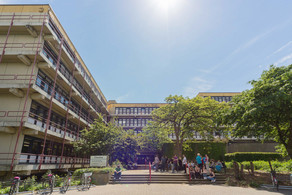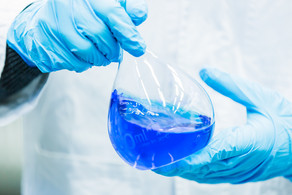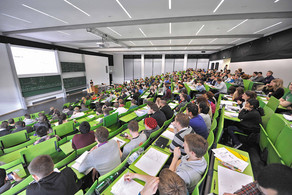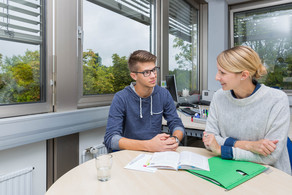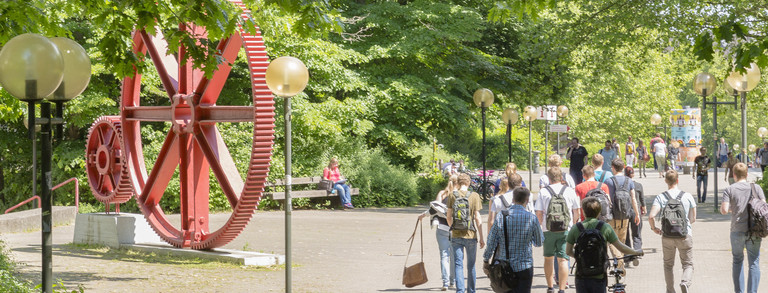Curriculum Vitae
Rasmus Linser was born in Walsrode, Germany, in 1980. He studied chemistry at the University of Göttingen and the Universidad Autónoma de Madrid. He obtained his Diploma in Chemistry in 2006, after his thesis in organic synthesis in the group of Prof. Dr. Dr. h. c. Lutz F. Tietze. After getting in first touch with biomolecular NMR spectroscopy in lectures held by Prof. Dr. Christian Griesinger, he pursued his PhD thesis in the group of Prof. Dr. Bernd Reif at the Leibniz Institute for Molecular Pharmacology (FMP), Berlin/Humboldt University Berlin until 2010. This work constituted the start of methods development for proton-detected solid-state NMR on proteins. After a stay at the University of New South Wales (UNSW) in Sydney, Australia, as a research scientist and conjoint lecturer at the Analytical Centre and School of Chemistry, he joined the group of Prof. Dr. Gerhard Wagner at Harvard Medical School, Department of Biological Chemistry and Molecular Pharmacology, in Boston, MA, in 2011. In conjunction with the reputable Discovery Early Career Research Award of the Australian Research Council (ARC), he maintained a dual affiliation with UNSW Sydney and Harvard Medical School, further pursuing research in the group of Dr. Jacqueline Gulbis at the Walter and Eliza Hall Institute (WEHI) Melbourne.
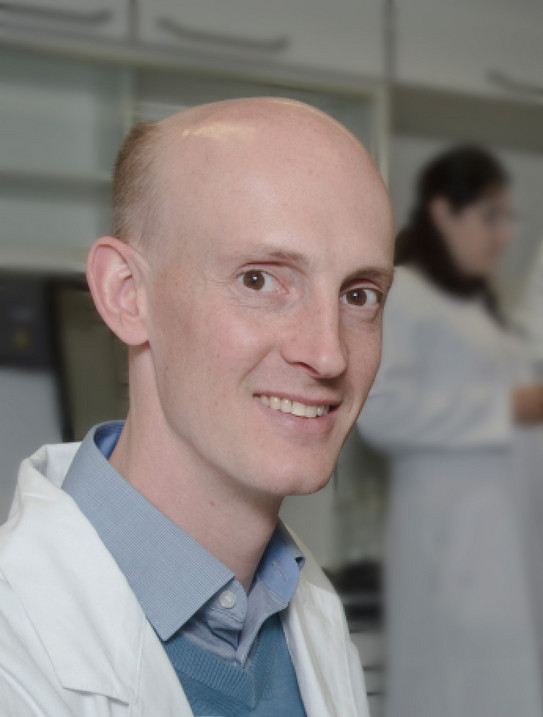
During this period, his research was expanded by the focus on protein expression and purification, in particular of membrane proteins, and elucidation of protein structure and dynamics using solution NMR. Based on a Liebig fellowship of the Association of the Chemical Industries (VCI), and successively an Emmy Noether fellowship of the German Research Association (DFG), Rasmus Linser moved to the Max Planck Institute for Biophysical Chemistry in Göttingen in 2014 as the group leader for solid-state NMR at the department for NMR-Based Structural Biology. From beginning of 2016, he worded as an associate professor (W2) at the Department of Chemistry and Pharmacy, Ludwig-Maximilians-University, in Munich, before taking up a position (W3, chair for biomolecular NMR spectroscopy), at the TU Dortmund. In May 2019, the group moved into the new CCB building at TU Dortmund and is now equipped with generous funds and lab space, as well as two high-field (700 and 800 MHz) Bruker spectrometers.
Rasmus Linser is interested in innovative elucidation of structure, dynamics, and function of proteins using solid-state and solution-state NMR spectroscopy, both in the context of NMR methods development as well as application to biological questions.
He has been awarded a prestigious ERC Consolidator grant and is a member of the Executive Committee of the Experimental NMR Conference (ENC), belongs to the faculty of the International Max-Planck Research School for Life Sciences (IMPRS-LS), and to the faculty of the Excellence Cluster RESOLV (German Research Association). In 2024, Rasmus Linser was awarded the Internationalization Award of the TU for his outstanding international interactions and networking activities.
Short CV
| 2019 - : | Chair for biomolecular NMR spectroscopy (W3) at Technical University Dortmund. |
| 2016 - 2019 : | W2 professor for NMR Spectroscopy at the Department of Chemistry and Pharmacy, Ludwig-Maximilians-University Munich. |
| 2014 - 2016: | Group leader at the Department of NMR-Based Structural Biology, Max Planck Institute for Biophysical Chemistry, Göttingen. |
| 2012 - 2014: | DECRA researcher, affiliated with School of Chemistry, UNSW Sydney, and Harvard Medical School, Boston. |
| 2011 - 2014: | Postdoctoral research with Prof. Dr. Gerhard Wagner, Department for Biological Chemistry and Molecular Pharmacology, Harvard Medical School, Boston. |
| 2010 - 2011: | Research scientist and conjoint lecturer at the Analytical Centre and School of Chemistry, University of New South Wales (UNSW), Sydney. |
| 2006 - 2010: | Doctorate studies with Prof. Dr. Bernd Reif at the Leibniz-Institute for Molecular Pharmacology (FMP), Berlin. |
| 2001 - 2006: | Studies in chemistry at Uni Göttingen and at the Universidad Autónoma de Madrid (UAM). |
Honors
| 2024-: | Internationalization Award of the TU Dortmund for outstanding international activities |
| 2023-: | ERC Consolidator grant "bypassNMR" |
| 2023-: | Member Executive Committee of the Experimental NMR Conference (ENC) |
| 2018 -: | Member International Max-Planck Research School (IMPRS of MPI for molecular physiology). |
| 2018 -: | Member Excellence Cluster RESOLV (DFG). |
| 2018 -: | Member SFB 1309 (DFG). |
| 2017 -: | Member SFB 749 (DFG). |
| 2016 -: | Member Center for NanoScience (CeNS). |
| 2016 -: | Member Cluster for Integrated Protein Science Munich (CIPSM). |
| September 2015: | Felix Bloch Lecture: Award of the GDCh for excellence in NMR spectroscopy. |
| 2015-2016: | Michael J. Fox funding. |
| 2015 - : | Emmy Noether funding (DFG). |
| 2014 - 2016: | Member SFB 803 (DFG). |
| 2014 - 2016: | Liebig fellowship (VCI, over 3 years). |
| 2012 - 2014: | Discovery Early Career Research Award (DECRA) of the Australian Research Council. |
| December 2011: | Research fellowship of the German Research Association (DFG) |
| 2007 - 2009: | Kekulé fellowship for PhD students (VCI, over 2 years). |
| 2001 - 2003: | Anniversary fellowship (VCI, over 2 years). |

